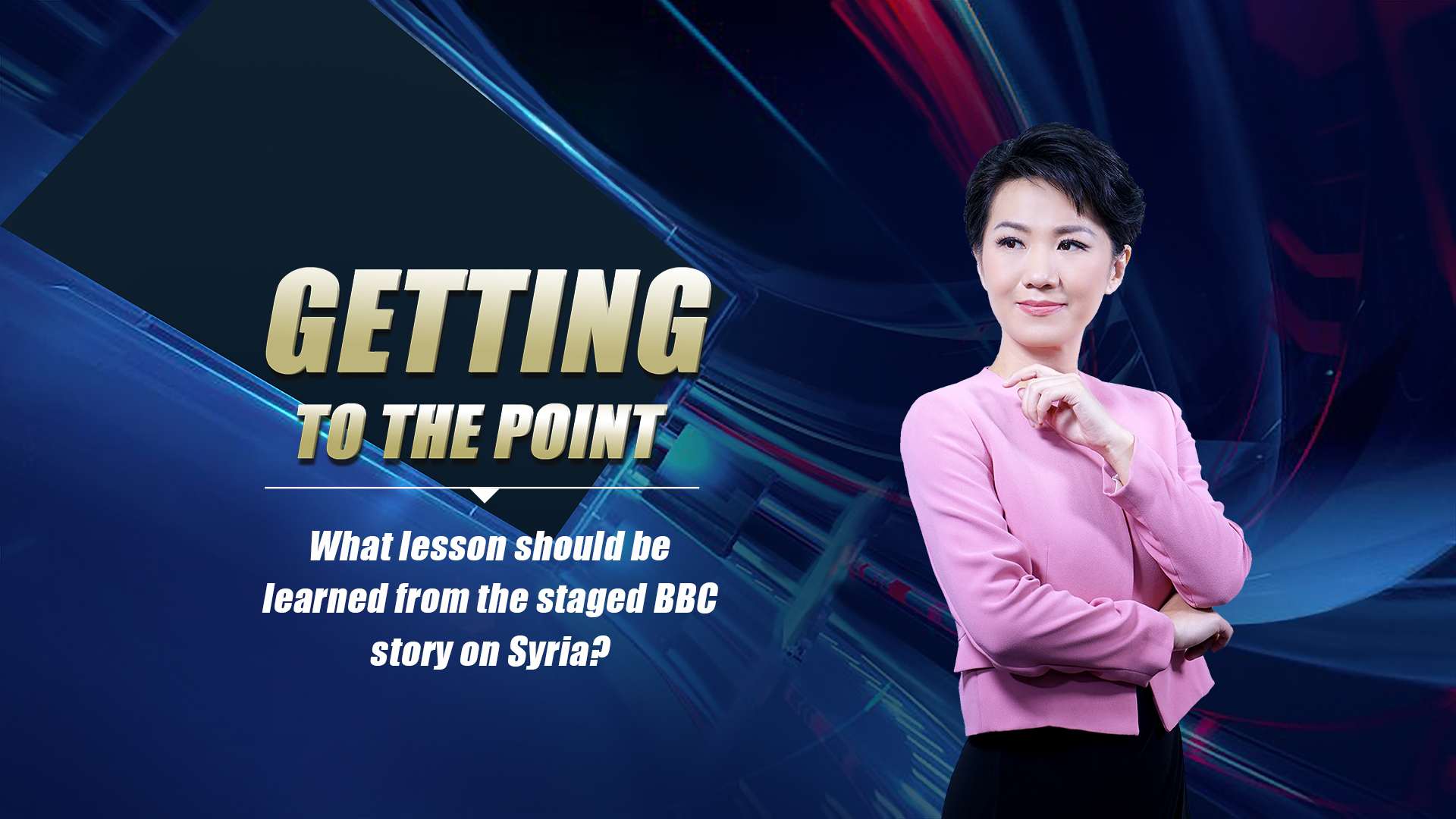
Opinion
23:12, 15-Feb-2019
Getting to the Point: What lesson should be learned from the staged BBC story on Syria?
Updated
15:33, 16-Feb-2019
Liu Xin
04:25

On Wednesday, a BBC Syria producer announced to the world that the hospital scene in a BBC story in the wake of a suspected chemical attack in Syria last April was "fake."
Riam Dalati was referring to the alleged chemical gas attack in the town of Douma some 20 km northeast of Damascus, which the BBC claimed inflicted damage. In the story, children appeared to be treated for the attack. A lack of doctors appeared to add to their suffering and the urgency of the situation.
After months of investigation, Dalati came forth to overturn his own work. He tweeted that he can prove without a doubt that the Douma hospital scene was staged. No fatalities occurred in the hospital, he said. All the activists and people he spoke to were in other areas. One of the people who filmed the scene was a doctor affiliated with Jaysh Al-Islam, an internationally recognized terrorist group.
From his description, it seems that he was tricked into believing what he saw in the hospital at the time, although one can be absolutely sure. As a veteran journalist, it's his basic duty to check the authenticity of his information and the background of his sources before publishing the story, especially when it comes to such an important subject.
The story has helped mislead the public opinion, creating the impression that chemical weapons were indeed used against innocent women and children. Seven days later, the U.S., together with its allies France and the UK, bombed what they believed were chemical weapons facilities in Syria, hours before UN inspectors were due to arrive for an official investigation.
Dalati's announcement is not a surprise to many who have independent judgment. Shortly after the Douma incident, journalists from both Russia and China went to the site to try to find out the truth.
According to Russia 24, the boy featured in the BBC story had gone to the hospital because strangers asked him to. The father of the boy said there was no abnormal attack at the time. A Chinese journalist investigated the hospital and found many questions unanswered. According to hospital staff, no suffocation cases caused by poisoning were treated in the hospital on the day of the alleged attack.
These important questions were seldom asked in the Western media. Dalati's announcement on Wednesday is unlikely to receive much attention either. The BBC reacted by saying his post reflects his personal view, and the attack did indeed take place. But if the hospital scene was staged, what proof supports this claim?
The BBC should ask the civilians who were wounded in the ensuing airstrikes if they accept that this was the reason why they got hurt. Not to mention the sovereignty of Syria that has been trampled upon and the material damages caused.
This was not the first time and will not be the last time that unauthenticated information or even lies were published by some journalists or media organizations in the West which were used to advance the Western narrative.
The Uygur woman by the name of Mirgrul Tursun who lied about her life in China's Xinjiang Uygur Autonomous Region is just another example.
After being proven to be false, the CNN story based on her account is still there, quoted and re-quoted to serve the basis of other stories criticizing China. Her lies were even used to make the case for relevant legislation by the U.S. Congress.
I once said the Western media normally don't lie, only tell the partial truth. In this case, I'm going to correct myself. If a staged story is reported as a true story, it can be as damaging as lying.
To err is human, but to err again and again is a human tragedy. To admit having erred and to correct the wrongdoing is the only way to start rebuilding the credibility of the Western media.
(If you want to contribute and have specific expertise, please contact us at opinions@cgtn.com)

SITEMAP
Copyright © 2018 CGTN. Beijing ICP prepared NO.16065310-3
Copyright © 2018 CGTN. Beijing ICP prepared NO.16065310-3